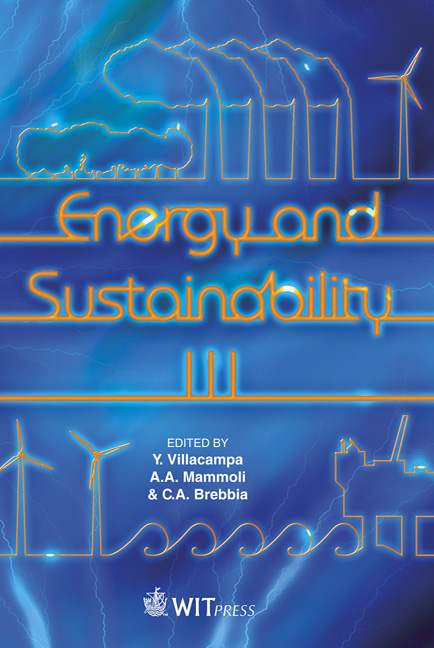On The Future Relevance Of Biofuels For Transport In EU-15 Countries
Price
Free (open access)
Transaction
Volume
143
Pages
12
Page Range
97 - 108
Published
2011
Size
392 kb
Paper DOI
10.2495/ESUS110091
Copyright
WIT Press
Author(s)
A. Ajanovic & R. Haas
Abstract
The discussion on the promotion of biofuels in the EU-countries is ambiguous: benefits like reduction of greenhouse gas emissions and increase of energy supply security are confronted with high costs and bad ecological performance. On the one hand the EU has set the goal of reaching 10% biofuels by 2020. On the other hand there are continuous persisting discussions to undermine this goal. The core objective of this paper is to investigate the market prospects of biofuels for transport in the EU-15 in a dynamic framework till 2030. While the economic prospects for the 1st generation of biofuels are rather promising – cost-effectiveness under current tax policies exists already – their potentials are very restricted especially due to limited crops areas. Moreover, the environmental performance of 1st generation biofuels is currently rather modest. 2nd generation biofuels will –in a favourable case – enter the market between 2020 and 2030. However, their full potentials will be achieved only after 2030. Keywords: biofuels, costs, potentials, CO2-emissions. 1 Introduction The discussion on the promotion of biofuels is ambiguous: benefits like reduction of greenhouse gas emissions and increase of energy supply security are confronted with high costs and bad ecological performance. Great hopes are currently put on biofuels 2nd generation. The major advantage of the 2nd generation of biofuels is that they can also be produced from resources such as ligno-cellulose based wood residues, waste wood or short-rotation copies, which are not dependent on food production-sensitive crop areas. The core objective of this paper is to investigate the market prospects of biofuels for transport in the EU-15 in a dynamic framework till 2030. This work
Keywords
biofuels, costs, potentials, CO2-emissions





